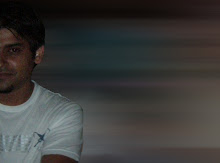Hezbollah Secretary General Seyyed Hassan Nasrallah
Thu, 02 Apr 2009 00:36:57 GMT
Hezbollah's leader says the Lebanese movement's victory in the upcoming elections would pave the way for a national unity government.
"Victory for the (Hezbollah-led) minority (in the outgoing parliament) will open the way for a unity government ... The same is not the case if the current majority wins the elections," said Seyyed Hassan Nasrallah, during a televised speech on Wednesday.
"A unity government would allow everyone to be partners so that nobody has a stranglehold over decision-making," he added, AFP reported.
The elections should be "democratic, although our democracy is not similar to other world democracies, taking into consideration the Lebanese confessional system," he said.
The Lebanese society consists of 18 confessional groups, which are part of the main Christian, Shia, Sunni and Druze communities.
He, however, said the pro-Western March 14 bloc's victory would hinder the process of national dialogue in the country.
After an 18-month standoff with the majority bloc of Prime Minister, Fuad Siniora, that brought the country to the brink of civil war, the Hezbollah-led opposition reached an agreement with the pro-Western parliamentary bloc based on a power-sharing deal in May 2008.
"Victory for the (Hezbollah-led) minority (in the outgoing parliament) will open the way for a unity government ... The same is not the case if the current majority wins the elections," said Seyyed Hassan Nasrallah, during a televised speech on Wednesday.
"A unity government would allow everyone to be partners so that nobody has a stranglehold over decision-making," he added, AFP reported.
The elections should be "democratic, although our democracy is not similar to other world democracies, taking into consideration the Lebanese confessional system," he said.
The Lebanese society consists of 18 confessional groups, which are part of the main Christian, Shia, Sunni and Druze communities.
He, however, said the pro-Western March 14 bloc's victory would hinder the process of national dialogue in the country.
After an 18-month standoff with the majority bloc of Prime Minister, Fuad Siniora, that brought the country to the brink of civil war, the Hezbollah-led opposition reached an agreement with the pro-Western parliamentary bloc based on a power-sharing deal in May 2008.
This entry was posted
on Tuesday, April 7, 2009
at Tuesday, April 07, 2009
and is filed under
Middle East
. You can follow any responses to this entry through the
comments feed
.







